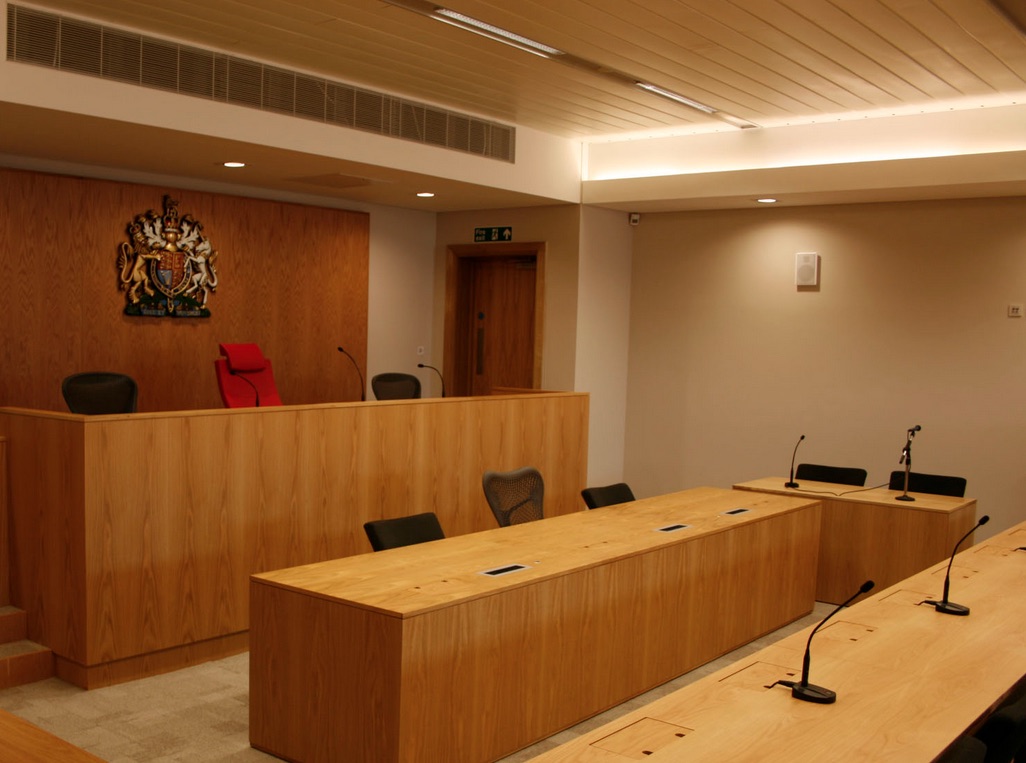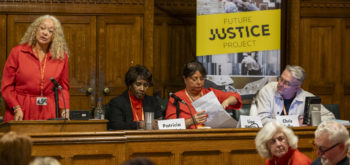The Ministry of Justice has denied reports that it is planning the ‘wholesale’ privatisation of the courts, reports Louise Asquith. The Times reported yesterday that the government was considering releasing the courts from Treasury control and they would instead, be funded through‘charging wealthy litigants greater fees as well as private sector investment with investment from hedge funds encouraged to invest by an attractive rate of return’.
However later in the day an MoJ spokesperson insisted the proposals being considered did not amount to wholesale privatisation of the courts service. ‘We are committed to the firm, fair and independent administration of justice,’ he said.
The proposals as reported in the Times came after an eight-week campaign following the justice secretary Chris Grayling announced plans for a system of price-competitive tendering which would reduce the legal aid bill by £220 million and remove the right of defendants to choose their own lawyer. Last week there was a rally outside parliament and a Criminal Law Solicitors Association meeting last week at Friends House where 1,000 defence lawyers voted unanimously in support of a a motion to reject price-competitive tendering – see HERE.
Nigel Lithman QC, vice chairman of the Criminal Bar Association, stated that the government ‘did not seem to understand the havoc that they are causing in the judicial system. Either that or they just do not care’.
Over the weekend, Chris Grayling acknowledged that some of these proposals ’caused disquiet in the legal community’ in the Express.
‘Let me be clear, I’ve brought forward these proposals because I’ve had to,’ he wrote. ‘I understand that some lawyers might be worried about how this might affect them and what the future holds but like every other business or profession over the past 10 years we need them to adapt to the circumstances around them, to modernise and become leaner. Like every other sector paid from the public purse we need the legal profession to help us find the savings in spending that we need in order to get this country back on track. Some of what is being claimed by those who don’t agree with the proposals simply isn’t the case. The changes we’ve proposed won’t affect people getting a fair trial and they won’t destroy the independent criminal Bar.’
Maura McGowan, QC, chairman of the Bar Council, argued that courts were ‘so much part of the justice system that they ought, in a proper society, to be administered by Government as a public institution, just like the health service’. Likewise, the former Lord Chancellor, Lord Falconer of Thoroton argued: ‘It is not just about independence of spirit, but about places to do justice.’
The proposals ranged from ‘transferring the running and maintenance of court buildings to a private company to more radical proposals such as transferring the 20,000 courts staff into the private sector.’ Judges and magistrates however, would not be affected by the plans.
Lord Falconer said: ‘I am all in favour of making more money from commercial court users, and I am also all in favour of those who commit crime making a bigger contribution to the courts…[but] I would be very concerned about whether the driver of economic efficiency in a privatised system would be compatible with maintaining the independent administration of justice.’






